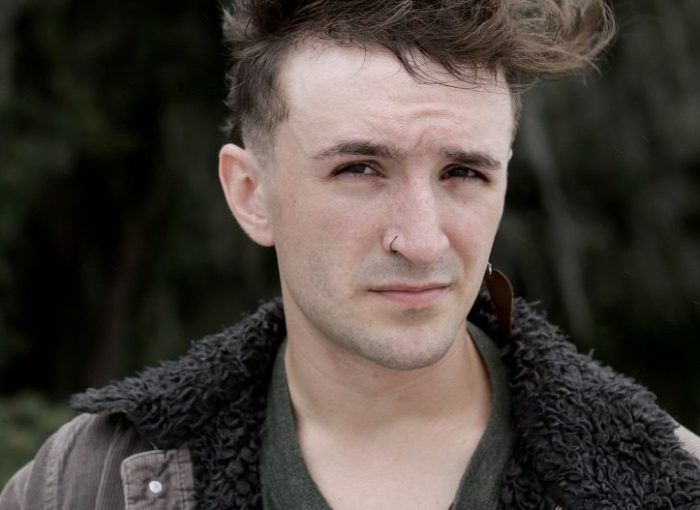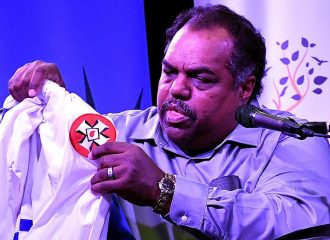By Jude Wise
I used to believe that the thing missing from my life was people like me.
I’m well acquainted with loneliness—most people in my generation are. Despite having built a world more connected than ever before, humanity is somehow also currently marked by a distinctive isolation. We feel it as we scroll on our phones, watch our shows, listen to our music, etc. The downside of living in a digitalized world is that, when exposed to the best and worst of our species, it’s difficult to not feel lost in the narrative. We are all tortured by a seemingly mundane question, desperate not only to find a satisfying answer but also to live it out in a way that is loud enough to be heard: who am I?
My upbringing left me with the assumption that there was something inherently different about me from other people and that, whatever that thing was, it was bad. My family moved often, leaving me in a position that made it difficult to make and keep friends. Over time I found the energy necessary to develop these temporary relationships not worth the effort and learned instead to enjoy my own company. This practice intensified as I was forced to come to terms with my emerging queerness—one which contrasted blatantly with the values I was raised within. I held to the hope that one day, once I had taken control of my life, I would find a place where I belonged; a place with people like me.
Then, as I first arrived at the University of Central Florida, I prepared to make that hope a reality.
Though obstructed by the emergence of the COVID-19 Pandemic at the start of my freshman year, I made every safe effort I could to find my people amid our quarantine. I joined virtual clubs, made efforts to communicate with my classmates for the few in-person classes I had been provided, and utilized social media to try and make connections remotely. Eventually, I did find people similar to me: I found other queer folk, students from families that traveled extensively, and many people familiar with the deep loneliness that defined my childhood. What struck me as I made these connections, however, was the disheartening reality that similarity was not the definitive metric for compatibility I had fantasized about throughout my life—in many instances, it was the people who were the most alike me that I struggled to connect with the most.
I was discouraged. If I couldn’t find my place among the people who understood my life experiences, would I find it anywhere? I entered a dark period in which I once again isolated myself and ceased putting effort into developing relationships with people. I embraced the pessimistic conclusion that I was fundamentally flawed and simply not meant for the type of community I desired.
Until I found them: my current friends. I wasn’t looking when they came into my life—rather, I happened upon them as I began to study regularly at a small coffee shop just outside of campus. Casual conversations slowly turned deep, and soon enough I found myself expressing things to these people I had never previously expressed to anyone else. What confused me about the development of these connections was how different this group of people was: we all came from vastly different life experiences, held different worldviews and philosophies, and found passion in different things. Despite having very little to connect over, I identified strongly with these people’s emotions and personalities, and it seemed they felt similarly about me. Though I was previously under the impression that these types of deep relationships were inaccessible to me, now I was finding my place among this random collection of individuals I found without searching for.
When it came time for my co-editor, Aamena, and I to choose the theme for Issue 27, we both knew that we wanted to highlight diversity. Upon further discussion, however, it was clear that there was something more specific to our vision. We recognized the reality that diversity is not founded in individuals, but rather in humanity as a collective, and our goal was to highlight diversity as a collaborative process. It was with this in mind that we landed on our theme for Issue 27: “Collective Diversity.” We searched for articles that demonstrated how unalike people come together and build connections strengthened by their differences, as well as the impact those connections can have. We are extremely satisfied with the pieces we received and enthusiastic to be sharing them with you.
If there is anything we hope for you to take away when reading through this issue, it is the value of diversity. The world we exist in becomes more divisive every day, and we feel that the remedy to this is not to shut out those who are different than ourselves but rather to make an active effort to understand them and their perspectives. My friends helped me realize that our differences are what make us beautiful—had I never put the effort into knowing them, I might’ve missed this. Any person, no matter how different, could be the friend you’ve been searching for: it is up to you to give them the chance.
Let’s Now Hear From Aamena Lalji
The first thing about me I tell anyone who asks is this: I am a reader.
While this is true, it is only a fraction of the truth. I don’t merely read books but digest them, devour the words from their pages and store them in my cheeks like a squirrel in winter. Stories live in my heart long after I flip their covers shut, tenants whom I cannot, for the life of me, bring myself to evict. Over the years, I have warmed my hands by the fire in Orchard House, haunted the halls of Hogwarts castle, and perfected my recipe for stone soup. I think, if I tilt my head just so, I can cast a shadow over the Lake of Shining Waters.
And I am not the only one.
As an English major, I have had the privilege of taking many a literature course here at UCF. While the bulk of my grades relied on individual analyses of our assigned works—in the form of short essays or cumulative papers—the time I spent in each of these classes was anything but unilateral. I couldn’t read a chapter of Brontë’s Wuthering Heights without discussing it alongside my peers, or a section of DeLillo’s White Noise without reading and contributing to their discussion posts—nor would I want to. It is because of the time I spent poring over pages with my classmates that I learned the importance of collaboration as a reader. They opened my eyes to ideas I would have never arrived at on my own.
And wasn’t it interesting? That the people who appeared so different from me on the surface were the same people who, like me, found their comfort character in a certain Meg March. People I might never have come to know outside of the classroom, simply because our lives were so dissimilar our paths wouldn’t have crossed, were the same ones I sat at the Ravenclaw table with twice a week in Harry Potter Studies, bonding over our likeness to Hermione Granger.
Collaboration is inevitable, even in an act as commonplace as reading a book. So is diversity. And, when we recognize that the second is essential to the first, success becomes inevitable, too.
The theme of this summer’s edition of Imprint, Collective Diversity, was hatched from this notion. Both Jude and I felt that it was impossible to publish an issue from UCF students without highlighting the fact that so many of us come from different backgrounds, possess various experiences, and are overall very diverse; and impossible to discuss diversity without mentioning the subtlety in our similarities, or the ways in which we, disparate though we are, can learn from each other. As you read these articles and watch the introductory video, we hope you will think about the ideas and values you hold that were born from interactions outside your immediate circle. Ask yourself this: Would you be the same person you are today without collaborating with those different from yourself?
I am a reader because I enjoy inhabiting other worlds, even if my stays are fleeting. I am a person because I recognize that my world is not the only one, and I am better because of it.




